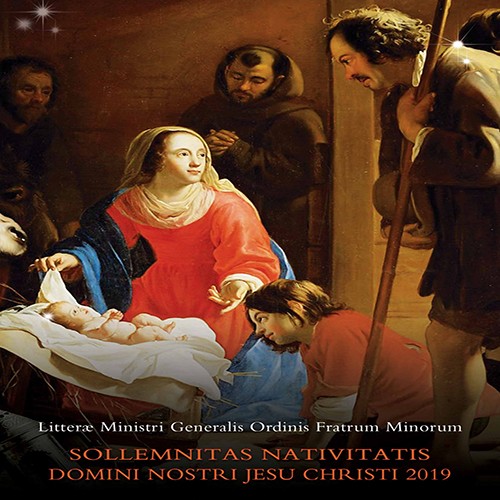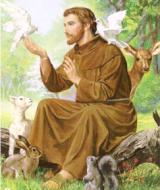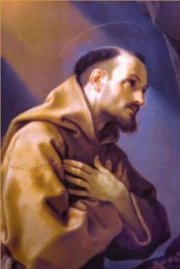


In this text from Second Isaiah, the return of the Covenant people from Babylonian exile to Jerusalem, the Holy City, is proclaimed as an imminent reality, something that will occur. The people are desperately waiting. They were exhausted from having to live outside of their homes and their homeland, with no place to call their own. Even when they were finally allowed to return to their homeland, as reflected in Third Isaiah, they found themselves yet again in difficulty and suffering from deep, existential, and spiritual exhaustion. They soon discovered they could not simply live on the ‘fumes’ of the faith of their ancestors, a faith steeped in an absolute trust in God who called to Abraham and Sarah, to Moses and Miriam, to go out from their securities and to embrace a new vision and a new land that God was promising to them. These same people were progressively exhausted from the abuses of leaders within the community — both religious and political — who were more focused on amassing power and riches for themselves and their family and friends than they were in living just and spiritually truthful lives. They were exhausted from the external pressures placed upon them to conform to the religious, cultural, philosophical and ethical mores of their times. They were exhausted from living in fear: the fear of losing their religious and cultural identity; the fear of losing hope in the God who had brought their ancestors out of bondage in Egypt and into the promised land, and who had now offered them the possibility to return home.
It is within this context of estrangement and the weakening of the bonds of faith and fraternity that the words of the Prophet Isaiah must be understood. Despite all of their failures, somehow there persisted among the people a deep longing for something — or better yet someone — who would bring them a message of hope, the return of the Lord into their midst, for only when the Lord returns to Zion, when the Lord is placed at the center of all human and spiritual concerns, then would the people find the way back to their true identity, their true home.
What was true then for the people of God remains true today: it is God who initiates this process of restoration, a restoration that leads us along the way of holiness of life, a daily living out of our faith, and also to a practice of the justice and peace of God. But is not this restoration at the heart of the Christmas story? Is not the event of the Incarnation of Jesus, his coming among us as ‘one like us’, his sharing with us a new vision of how we might once again walk in the love, mercy, justice, truth, and peace of God, at the very center of our identity as Christian disciples and as Lesser Brothers? My dear Brothers, the answer to both of these questions can only be discovered as we live faithfully the vocation to which we have been called and for which we have been chosen and sent.
Returning to Second Isaiah for a moment, the text makes clear that it will be from from the battlefield that a messenger will be sent to proclaim that God has been victorious and that the suffering of the people is over. Now they can prepare themselves spiritually, morally, and psychologically to return back ‘home’. However, there is a twist to this story. The messenger is none other than God’s Self who comes in triumph. The Lord returns! And the battlefield is a confrontation between God and all of human history. God comes not only to deliver and redeem Jerusalem; God comes to deliver and redeem all the nations and all of history: past, present, and future. The message of the Prophet opens God’s offer of salvation to all peoples everywhere, to each of us today who have been sealed by the blood of the Lamb. No longer is it limited only to those considered part of the original ‘Covenant’. This is an outrageous declaration, heresy, since it admits that God might be working even outside the doctrinally approved and ritually purified perimeters of the “chosen people.” God might be working even in cultures that are not yet purified, that are still ‘on the way towards holiness’, that are slowly passing through a process of inculturation and purification. God might even be working with people who have experiences of God, who conceive of and perform actions of worship little understood by those outside of their cultures and traditions but which are genuine acts of worship, actions leading towards a worship of the one universal Creator God. Thus, the victory that is declared on the battlefield of history is not a victory for this or that king, this or that country, this or that religious or political ideology, this or that culture or race or people. The victory that Isaiah announces belongs to God alone. God is drawing all peoples towards God’s Self, expressed through a variety of forms since no singular expression is capable of containing all of who God is and what God intends for the world.
How beautiful upon the mountains are the feet of him who brings glad tidings,
announcing peace, bearing good news, announcing salvation, and saying to Zion,
“Your God is King!”
My dear Brothers and Friends, this brings us to the very heart of the Christmas story we celebrate today. The singular event of the Incarnation, God’s taking human form, stripping Self in order to enter into our human condition, is a witness to God’s redeeming love and grace, God’s commitment to enter into and redeem all of life without exception, without exclusion. The peace, good news, and salvation spoken of by the Prophet Isaiah is a declaration that God reigns over all that seeks to divide and destroy us and the natural environment. This victory is not grounded in an ideology of power and might, as the world currently envisages. Rather, it is a victory grounded in the unconditional love and mercy of God, which has no parallel in human history or the natural Order. This unconditional love and mercy is expressed not through might and right, but through what Pope Francis calls “the humility of God taken to the extreme” (Christmas homily 2018). Pope Francis continues:
It is the love with which, that night, he assumed our frailty, our suffering, our anxieties, our desires and our limitations. The message that everyone was expecting, that everyone was searching for in the depths of their souls, was none other than the tenderness of God: God who looks upon us with eyes full of love, who accepts our poverty, God who is in love with our smallness.
The Incarnation is, fundamentally, a relational event. God chooses to enter into deeper communion with us so that we, like the people of Isaiah’s times, might recognize the saving grace and greatness in which we have been created and to which we are called as beloved children of the Triune God. Recognizing the truth that God seeks to share with all of humanity and creation, we in turn become humble servants of the God who humbled Self for the sake of all that God has created. But was this not also at the heart of the message of the 2018 Plenary Council of the Order? Is this not also the trajectory of the Order as we begin to look towards the 2021 General Chapter?
Humility; smallness; poverty; tenderness; love; acceptance. These words help us to better understand the nature of this Christmas celebration, and how we are to live and witness to the incredible event of the Incarnation of Jesus Christ in our lives today. We have only to recall the role of these same words, or better yet, the attributes of Christian discipleship and Franciscan life and mission manifested in the life of St. Francis of Assisi. He progressively came to discover in his life, in the life of his brothers, in the life of those who were materially poor and socially excluded, in the life of the Sultan al-Malik al-Kamil and others who did not profess the Christian faith, and in all of creation, the transformative power contained not in God’s ‘greatness’ but rather in God’s ‘smallness’. Francis perceived in the smallness and poverty of the manger a love so strong and deep as to be capable of melting hardened hearts and breaking all barriers separating people one from another – geographical, cultural, social, religious, and other. It is by the grace of the Incarnation that new pathways for encounter, dialogue, discovery, forgiveness, and human fraternity are created and maintained. Only those who are steeped in the logic of God’s ‘Incarnational’ love will be able to reach out to those otherwise discounted and excluded: migrants and refugees; those who profess other religious ideas and practices; those who we are told are our ‘enemies’ when, in the logic of God’s Incarnation, they are our brothers and sisters; a wounded creation, exhausted and under threat from unbridled and immoral exploitation.
As we celebrate the unfathomable love and mercy of God which entered into human history in a unique and powerful manner through the Incarnation of Jesus, let us welcome God’s invitation for us to become the very presence of God’s offer of shalom, peace, to all around us. Let us commit to the pillars upon which this peace is constructed: truth, justice, love, freedom, and forgiveness (cf. John XXIII, Pacem in Terris; John Paul II). May this same gift of peace, fully embodied in great gift of God to the world, God’s beloved Son Jesus, fill our hearts with joy. May it give direction to our fraternities. And may it help shape the very substance and form of our mission as co-disciples with all Christians, journeying together with Jesus, with all of humanity, and with the created universe on the road towards God’s kingdom.
A blessed and peace-filled Christmas to each and every one of you!
Rome, 12 December 2019
Feast of Our Lady of Guadalupe
Br. Michael A. Perry, OFM
Minister General


|
Date |
Name of the Friars |
Events |
Year |
|
01 |
Charles Mathew Kolanchery |
Birth |
1947 |
|
02 |
Joseph Raj M. |
Birth |
1975 |
| 03 | Bl. Helene Enselmini, OSC | 1242 |
|
|
04 |
St. Charles Borromeo, OFS Bl. Teresa Manganiello, OFS Charles Bernard |
Birth |
1584 1876 1963 |
|
05 |
Lawrence Simon Bala Marneni + Thomas Thannikary + Bernard D’ Silva |
Birth Birth Home Home |
1949 1962 1996 2010 |
|
06 |
Bl. Marguerite deLorraine, OSC Singarayar A. Salvador D’Souza |
Birth Birth |
1521 1970 1979 |
|
07 |
St. Didacus of Alcala, OFM Bl. Raynier of Arezzo, OFM Hemant Xess |
Birth |
1463 304 1975 |
| 08 | Bl. John Duns Scouts OFM | 1308; |
|
|
09 |
Bl. Gabriel Ferreti, OFM Saji P. Mathew |
Birth |
1456 1975 |
|
10 |
Bl. Louis Guanella, OFS Augustine Pinto + Wilbert Smit |
Birth Home |
1340 1936 2003 |
|
11 |
Bl. Mary Crucifixa, OFS Fulgence Ekka Basil S. Lobo |
Birth Birth |
1826 1964 1971 |
| 12 | Bl. Giovanni della Pace, OFS | 1433 |
|
| 13 | St. Didace d’ Alcala, OFM | 1463 |
|
|
14 |
Franciscan Martyrs of Palestine + Mark O’Rourke Salvador Drego |
Home Birth |
1391 1974 1984 |
|
15 |
Bl. Sebastian de Jesus OFM Bl. Mary of the Passion FMM + Anthony Almeida |
Memoria Home |
1734 1904 1970 |
|
17 |
St. Elizabeth of Hungary Patroness of the OFS Bl. Jeanne de Signa, OFS |
|
1231 1307 |
|
18 |
Bl. Salome of Cracow, OFS |
|
1268 |
|
19 |
St. Agnes of Assisi, OSC Bl. Maria Milagros, OSC Thomas Joseph +Kamal Ekka |
Birth Home |
1253 1936 1962 2008 |
|
20 |
Franciscan Martyrs of Spain Irudayaraj Fernando + Bonaventure Davis + Bishop Ambrose Y +Jesu Irudayam |
Birth Home Home Home |
1936 1966 1971 1997 2009 |
|
22 |
Franciscan Martyrs of Armenia +Joachim Tinneny |
|
1895 2009 |
|
23 |
Bl. Marie de Jesus, Third Order Regular + John C. O’Dowda Maria Ratheesh Jenive |
Home Birth |
1902 1982 1999 |
|
24 |
Bl. Timothy Trajonowski, Conv Rajesh Praveen Kumar |
Birth |
1942 1994 |
|
25 |
All Deceased of the Seraphic Order St. Humilis of Bisgnano, OFM Bl. Elizabeth of Reute, Third Order Regular Carlos Dias Tojy M. |
Birth Birth |
1637 1420 1959 1970 |
|
26 |
St. Leonard of Port Maurice, OFM Balthazar Pinto |
Feast Birth |
1751 1960 |
|
27 |
St. Francis Anthony Fasani, Conv Johnson M. V. |
Feast Birth |
1742 1969 |
| 28 | St. Jams of La Marca, OFM | Feast | 1476 |
|
29 |
All Saints of the Seraphic Order Dependent Custody Foundation,North East. Amaladass Manickam |
Feast Erection Ordination |
2008 1985 |
|
30 |
Bl. Antoine Bonfandini, OFM Prasad Papabathuni |
Birth |
1482 1970 |